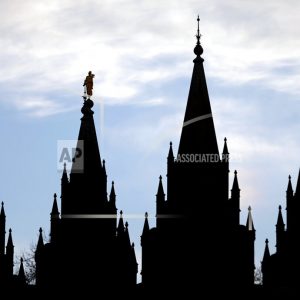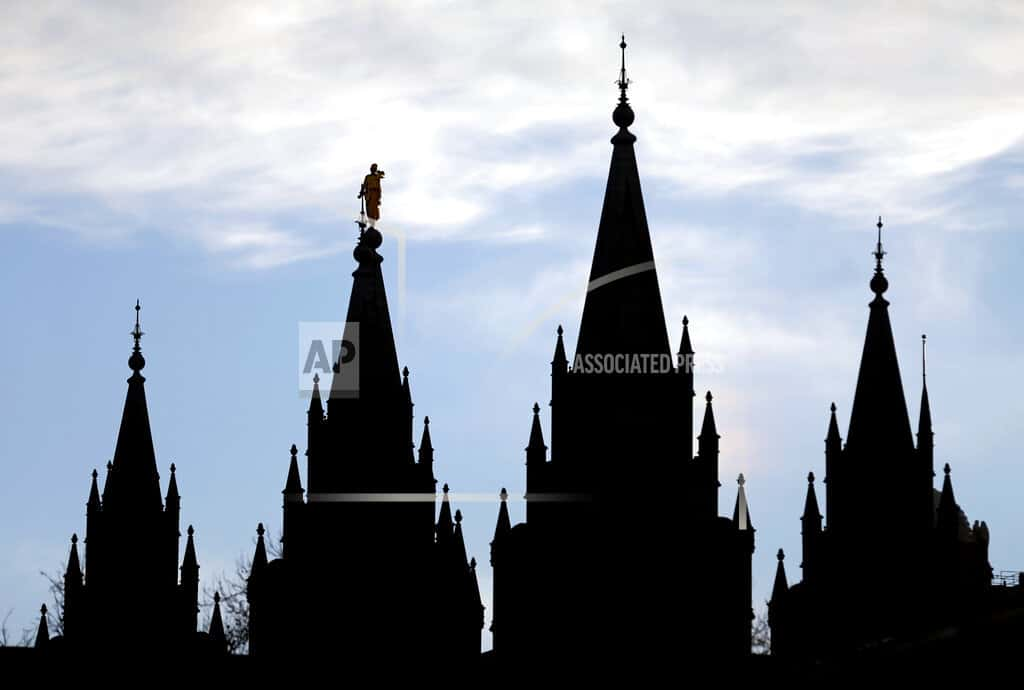
SALT LAKE CITY (AP) — Utah is set to become the 19th state to ban the discredited practice of conversion therapy in January after state officials came up with a proposal that has the support of the influential Church of a Jesus Christ of Latter-day Saints.
Republican Gov. Gary Herbert announced Tuesday night that church leaders support a regulatory rule his office helped craft after legislative efforts for a ban on the therapy failed earlier this year.
The faith known widely as the Mormon church opposed a previous version of the rule because it wanted assurances that church leaders and members who are therapists would be allowed to provide spiritual counseling for parishioners or families.
The faith opposes gay marriage and teaches that intimidate same-sex relationships are a sin. The religion has stuck to that belief while urging members to be kind and compassionate to LGBTQ people.
Conversion therapy is a practice used to try to change peoples’ sexual orientation or gender identity.
The rule would ban Utah therapists from subjecting LGBTQ minors to the practice that the American Psychological Association has said is not based in science and is harmful to mental health. The Utah rule proposal is set to go to a 30-day public comment period beginning Dec. 15 and take effect as soon as Jan. 22, Herbert said.
Church government affairs director Marty Stephens reiterated in the governor’s news release that the faith denounces conversion therapy and wants a ban. He said in an interview with The Associated Press last month that the faith doesn’t ascribe to “pray the gay away” thinking but that prayer and religious teachings can be helpful to people trying to navigate life’s challenges.
The religion holds tremendous influence in Utah, where the majority of state lawmakers and nearly two-thirds of the state’s 3.1 million residents are members of the faith. Herbert is a member and so are all six members of the state’s congressional delegation, including U.S. Sen. Mitt Romney.
The church had said in an Oct. 15 letter to state regulators that it would support a “carefully tailored” rule to ban “abusive” practices like conversion therapy but contended an earlier regulatory proposal banning the practice defined sexual orientation and efforts to change sexual orientation so broadly that it “would imperil legitimate and helpful therapies to the detriment of minor clients.”
For example, the church had claimed the bill would have prohibited therapists from discussing strategies for avoiding same-sex intimacy when young people seek help to adhere to the faith’s teachings.
The success in getting crucial support for the regulatory rule generated praise from LGBTQ advocates who had expressed frustration with the yearslong battle in Utah to ban conversion therapy. The rule uses language from a state legislative proposal that failed this year despite church leaders saying they would not oppose it.
“We are profoundly grateful to Governor Herbert and the Psychologist Licensing Board for the thoughtful and meticulous manner in which they have worked to protect LGBTQ-plus youth from conversion therapy,” said Troy Williams, executive director of Equality Utah. “We have no doubt the adoption of this rule will send a life-saving message to LGBTQ+ youth across our state.”
During a public hearing about the rule in September, a parade of LGBTQ people said undergoing the therapy led to shame, depression and suicide attempts.
Opponents argued that the rule would prevent parents from getting help for their children with “unwanted” gay feelings or even from talking about sexuality with their kids.



